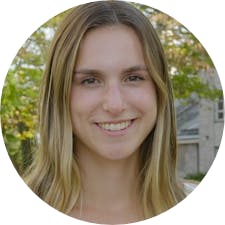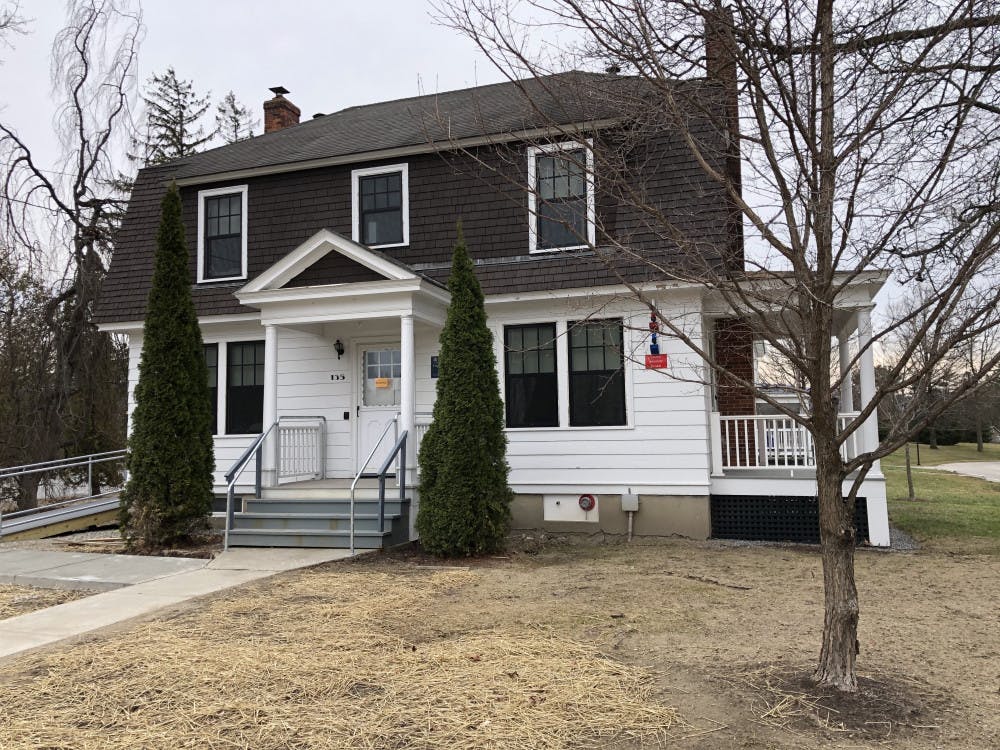Although major spiritual life hubs like Mead Chapel and the Scott Center have not been able to host the usual holiday events or weekly services, spiritual life groups have worked to adapt to in-person gathering limitations and differences in modality. Both the Scott Center and student-run religious organizations have found ways to foster connection among Middlebury students — whether remote or on campus.
While most programming has transitioned to Zoom, there are still some in-person services being offered on campus this semester. College Vespers, weekly Christian evening services, take place Thursday nights in Mead Chapel. Each service is 40 minutes long, consisting of reflective silence, music and a Bible reading. While the service is designed for Christian students, it is open to all.
“No matter who you are or where you are on this journey, you are welcome here,” said Reverend Andrew Nagy-Benson, who leads the services. “I hope College Vespers provides a space for all participants to experience unconditional love, a warm welcome, the peace of quiet, the glow of candlelight… [and] a sense of belonging in community.”
Unlike services of the past, everyone is masked and there is no live music. Even so, Mary Nagy-Benson ’24.5, daughter of Rev. Nagy-Benson, appreciates the in-person component.
“It's just really nice to see other people and have that brief interaction before and after,” she said. “It’s like a gift.”
Hillel, the Jewish student organization, runs weekly Shabbat services in multiple shifts to accommodate everyone in a socially distant way. Major holidays that normally have large services or an important communal meal, such as the Jewish High Holidays in the fall or Passover in the spring, have had to take place largely over Zoom.
“We've had to get really creative, especially since food is such an important part of fellowship in any religion,” Rabbi Danielle Stillman, a Scott Center chaplain who works with Hillel, said.
“I know Saifa, the Muslim chaplain, is also thinking about this because Ramadan is coming up in April,” she said. “[We’re] just trying to keep people connected in any way we can."
Stillman noted that there wasn’t one modality for the annual High Holiday services that worked for everyone.
“This year, it felt somehow easier to say, ‘We're going to have a nature walk on the TAM with different prompts for reflection, and we're going to have a playlist with songs that students think evoke the spirit of the High Holidays,’” Stillman said.
Scott Center Chaplain Saifa Hussain, who works with the Muslim Student Association, echoed the sentiment, explaining that working with students as a chaplain over Zoom can feel foreign and awkward at times, but also rewarding.
“I found the experimentation to be fun, fascinating, and [it] allows me to connect to introverted students in a way I haven’t been able to before,” Hussain said in an email to The Campus.
While upcoming programming for Ramadan will likely be virtual, Hussain hopes to be able to pivot to offering in-person Jumma Friday services.
“To be able to feel one’s laughter, see the life of facial expression or hear the fullness of one’s voice are things that can never be replaced,” she said.
With some students learning remotely, Zoom meetings — while sometimes exhausting — are an important opportunity for continued connection.
“It has been amazing how it’s been possible to still meet people [over Zoom],” said Clara Wolcott ’22, an InterVarsity Christian Fellowship leader. “[But] there is less community because you don’t have a chance to chit-chat with people and get to know them.”
Wolcott is excited to start leading small in-person meetings for InterVarsity soon.
The Scott Center is also creating a communal art installation, where students — regardless of their faith — can contribute and reflect on the grief and hope they have felt during the past year.
Although students may have to be a bit more proactive to discover what is offered on campus this semester, the Scott Center encourages all students to explore their offerings.
“You don't have to come from a religious background to take advantage of what the Scott Center has,” Stillman said. “We're really here for any student who's just asking big questions and trying to make meaning.”

Olivia Mueller '24 (she/her) is a News Editor.
Previously an Arts and Culture editor, Olivia is an International Politics and Economics major with a Spanish minor. Outside of the Campus, she is a spin instructor for YouPower, an avid runner and hiker, and a member of the Middlebury Mischords a cappella group.




